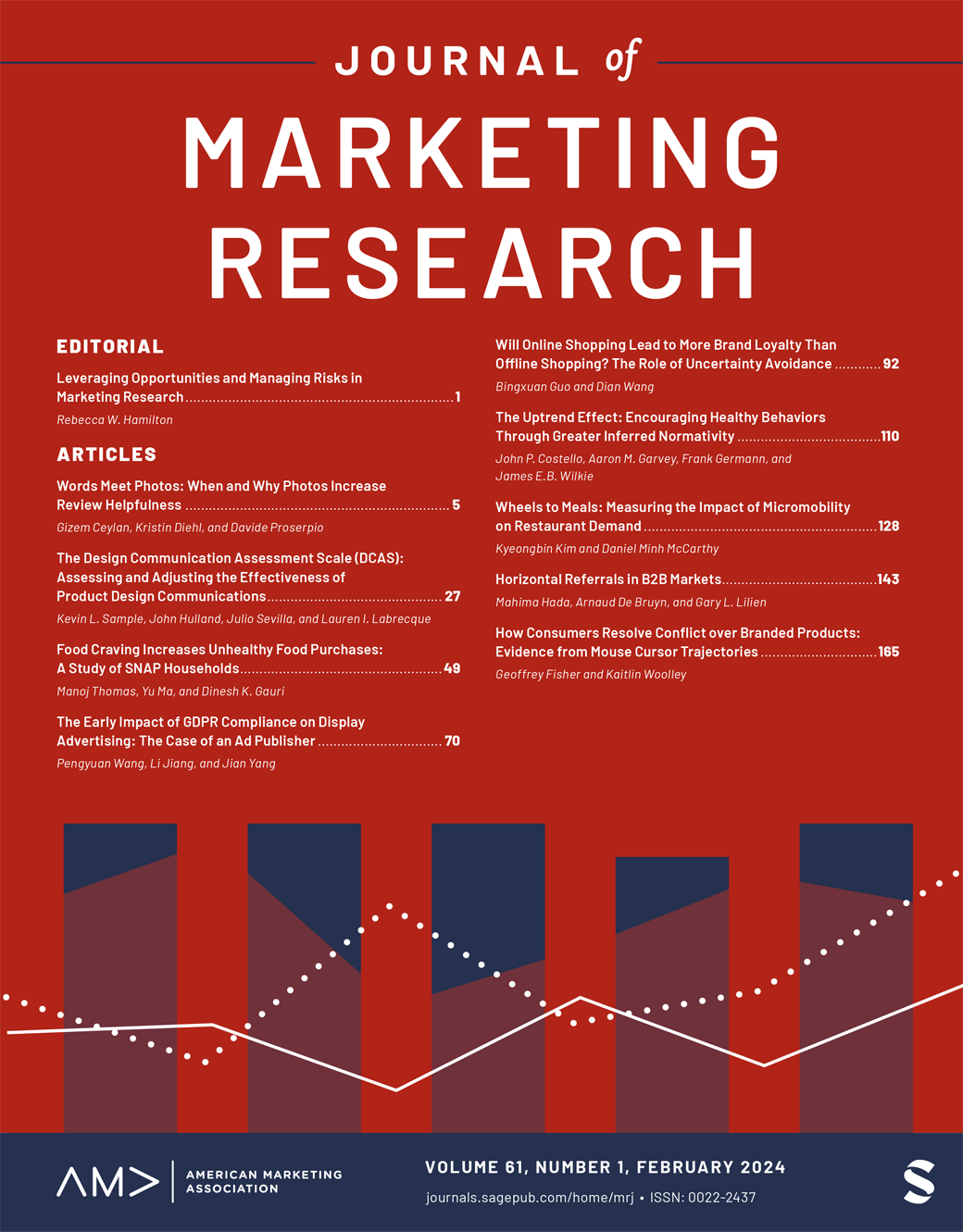Consumer Privacy Choices and (Un)Targeted Advertising Along the Purchase Journey
IF 5
1区 管理学
Q1 BUSINESS
引用次数: 4
Abstract
Advertising to a consumer provides potentially useful information to the consumer and moves them along the purchase journey, and tracking the consumer's online activities enables an advertiser to infer the consumer's purchase journey state and target repeat ads accordingly. However, many consumers dislike being tracked, and, furthermore, repeat advertising may lead to ad wearout. The authors develop a model with consumers, an advertiser, and an ad network to investigate, under the preceding considerations, the impact of regulations that endow consumers with the choice to opt in to or out of online tracking. The authors find that, if ad effectiveness is intermediate, opting in to tracking decreases ad repetition; otherwise, opting in increases ad repetition. To make an opt-in decision, a consumer weighs the cost of ad wearout from repeat ads against the benefit of obtaining potentially relevant product information from them, and the consumer opts in to tracking if either ad effectiveness is intermediate or sensitivity to ad wearout is low. This opt-in pattern creates counterintuitive implications; for instance, higher ad effectiveness, even though it implies higher ad valuation for the advertiser, may reduce repeat ads and the ad network's profit. Under regulation that requires consumer consent for tracking, the results shed light on when and why consumers give such consent, and provide useful insights for practitioners and policy makers.消费者在购买过程中的隐私选择和(非)定向广告
针对消费者的广告为消费者提供了潜在的有用信息,并推动他们沿着购买旅程,跟踪消费者的在线活动使广告商能够推断消费者的购买旅程状态并相应地定位重复广告。然而,许多消费者不喜欢被跟踪,而且,重复广告可能会导致广告失效。作者建立了一个由消费者、广告商和广告网络组成的模型,在上述考虑的情况下,调查赋予消费者选择加入或退出在线跟踪的法规的影响。作者发现,如果广告效果是中等的,选择跟踪会减少广告重复;否则,选择加入会增加广告的重复次数。为了做出选择加入的决定,消费者会权衡重复广告的广告失效成本与从中获得潜在相关产品信息的好处,如果广告效果中等或对广告失效的敏感性较低,消费者会选择加入跟踪。这种选择模式产生了违反直觉的含义;例如,更高的广告效果,即使它意味着更高的广告价值,也可能减少重复广告和广告网络的利润。在需要消费者同意进行跟踪的监管下,研究结果揭示了消费者何时以及为什么会同意,并为从业者和政策制定者提供了有用的见解。
本文章由计算机程序翻译,如有差异,请以英文原文为准。
求助全文
约1分钟内获得全文
求助全文
来源期刊

Journal of Marketing Research
BUSINESS-
CiteScore
10.30
自引率
6.60%
发文量
79
期刊介绍:
JMR is written for those academics and practitioners of marketing research who need to be in the forefront of the profession and in possession of the industry"s cutting-edge information. JMR publishes articles representing the entire spectrum of research in marketing. The editorial content is peer-reviewed by an expert panel of leading academics. Articles address the concepts, methods, and applications of marketing research that present new techniques for solving marketing problems; contribute to marketing knowledge based on the use of experimental, descriptive, or analytical techniques; and review and comment on the developments and concepts in related fields that have a bearing on the research industry and its practices.
 求助内容:
求助内容: 应助结果提醒方式:
应助结果提醒方式:


